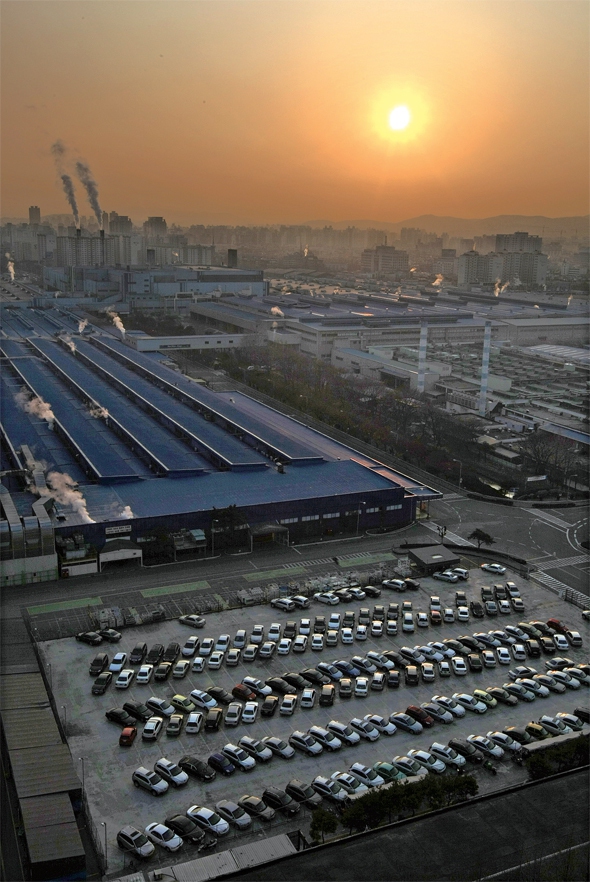 |
|
GM Korea’s factory in Bupyeong, Gyeonggi Province (by Lee Jeong-ah, staff photographer)
|
Move would pave the way for GM to leave the country after proceeds from a factory sale
The GM corporate headquarters in the US has taken the controversial step of asking GM Korea to provide its Bupyeong factory as collateral for a high-interest loan. If the factory is put up as collateral, GM would have the priority for liquidating the factory if GM Korea went bankrupt. This would pave the way for GM to decamp from South Korea with the proceeds from the factory sale. But even if the collateral request is blocked by the Korea Development Bank (KDB), the second largest shareholder in GM Korea, GM can still exploit this situation. GM is likely to try to gain the upper hand in negotiations by shifting the responsibility for repaying debt at GM Korea to the KDB and the South Korean government. Sources in the industry and at KDB told the Hankyoreh on Feb. 22 that GM Korea will be convening its board of directors on Feb. 23 to discuss motions to hold an extraordinary general meeting of shareholders and to extend the term for a 722 billion won loan (US$669 million) that is supposed to be paid to GM Holdings by the end of the month. Seven of the 10 directors were recommended by GM, and the other three by the KDB. The KDB-recommended directors are planning to vote in favor of both of these motions, and against a motion that GM is likely to table to offer the factory as collateral. “If this goes to the general meeting of stockholders, we will exercise our veto power. It’s contradictory for the GM corporate headquarters to announce a plan for a debt-equity swap for the loan in order to normalize management at GM Korea while simultaneously asking for the factory to be put up as collateral for extending the loan,” said a KDB official. According to a stockholder agreement signed in 2002, the KDB can exercise a veto on 17 “special resolution motions,” including putting up a factory as collateral. The contract requires such motions to receive the support of at least 85% of shareholders. Since the KDB has a 17.02% share in GM Korea, its opposition means that GM’s collateral motion was not feasible to begin with. GM also asked for a factory to be put up as collateral in 2015 and 2016, but the KDB vetoed these motions at general meetings of stockholders. But GM is moving forward with the motion regardless in an apparent attempt to exploit its unique position as both a creditor and the largest shareholder in GM Korea to gain the upper hand in the negotiations and to lay the groundwork for a more lucrative withdrawal from South Korea in the long run. GM has already promised to conduct a debt-equity swap for US$2.7 billion of its debt as long as the KDB pays in more capital proportional to its share in the company. If the KDB declines to increase its investment after the due diligence of GM Korea, GM could use the debt-equity swap to increase its share above 85%, enabling it to easily sell off the factories. By Choi Ha-yan and Jung Se-ra, staff reporters Please direct questions or comments to [english@hani.co.kr]






